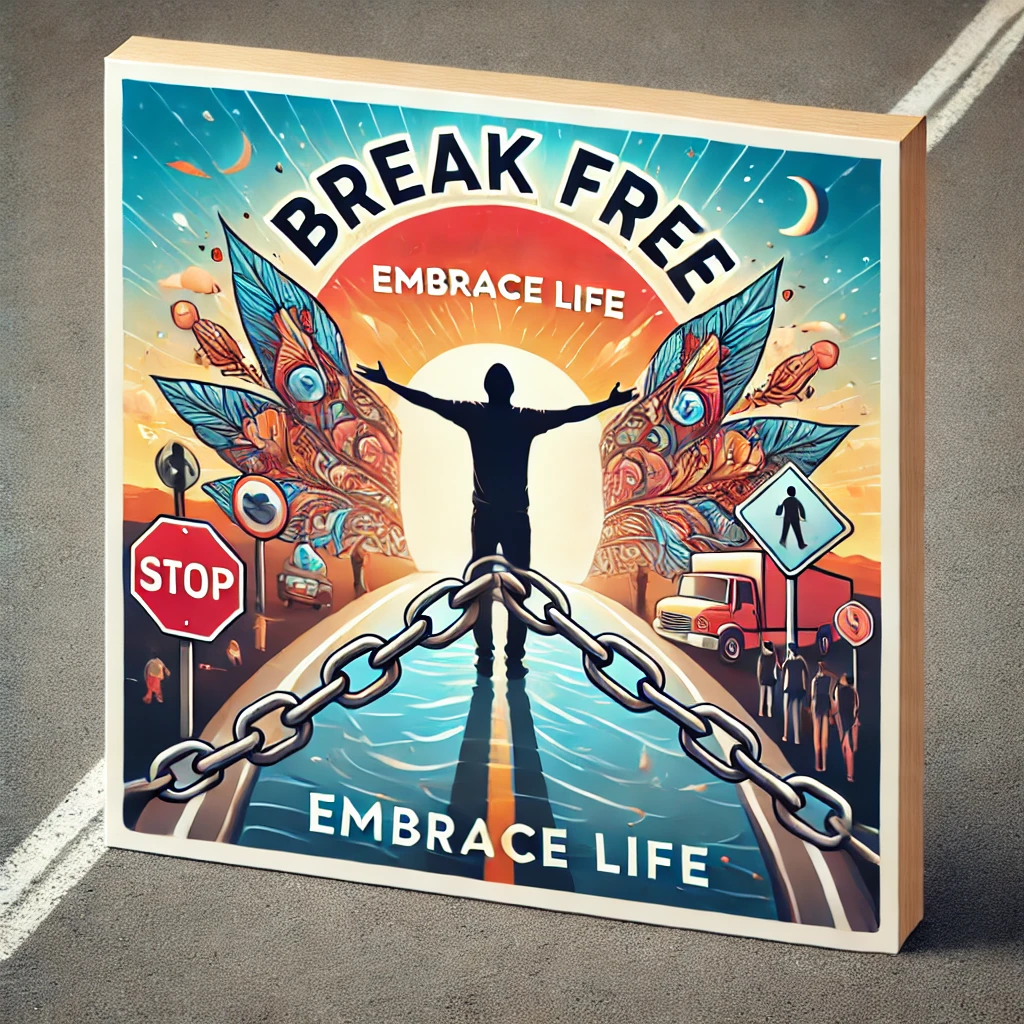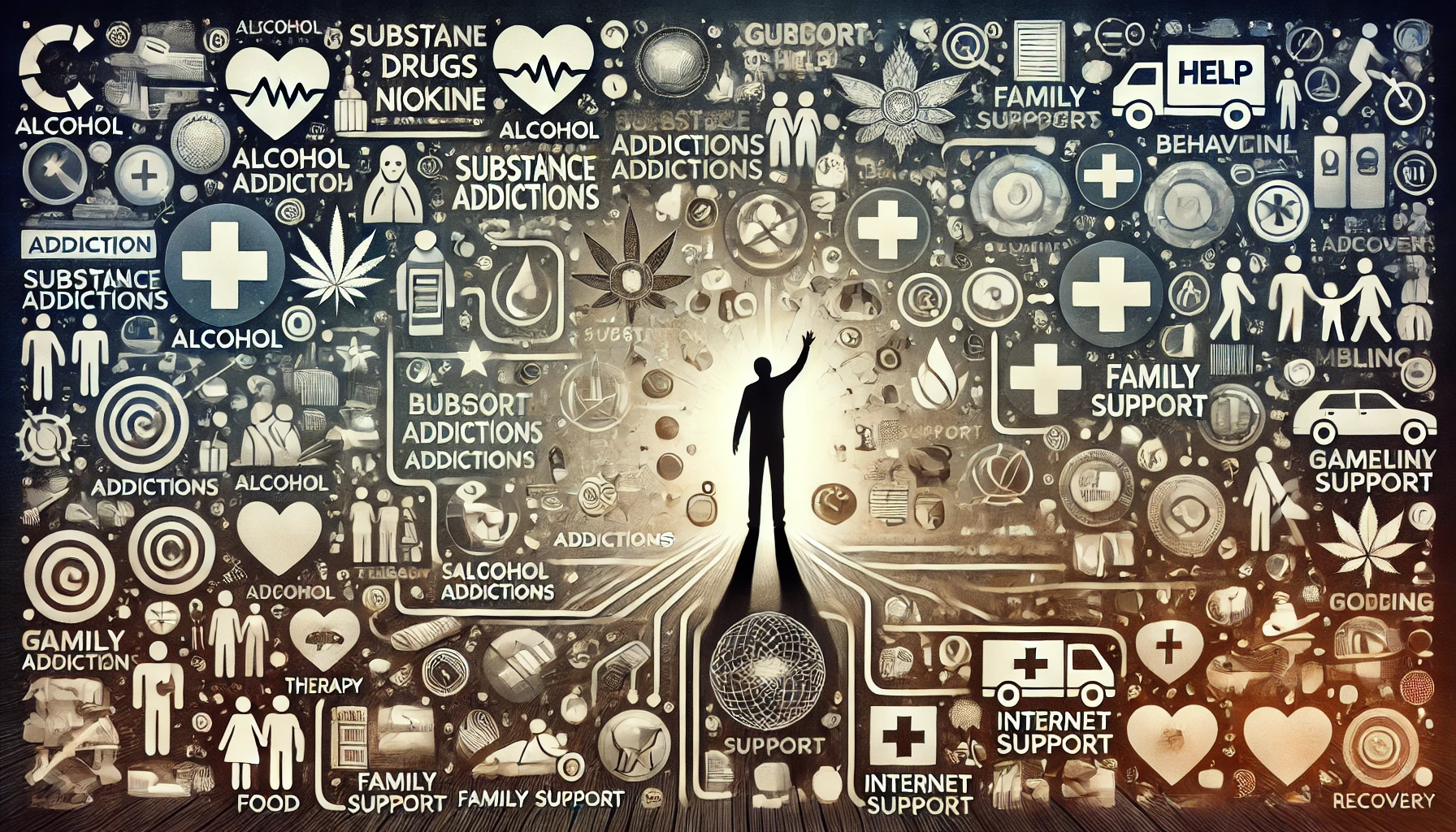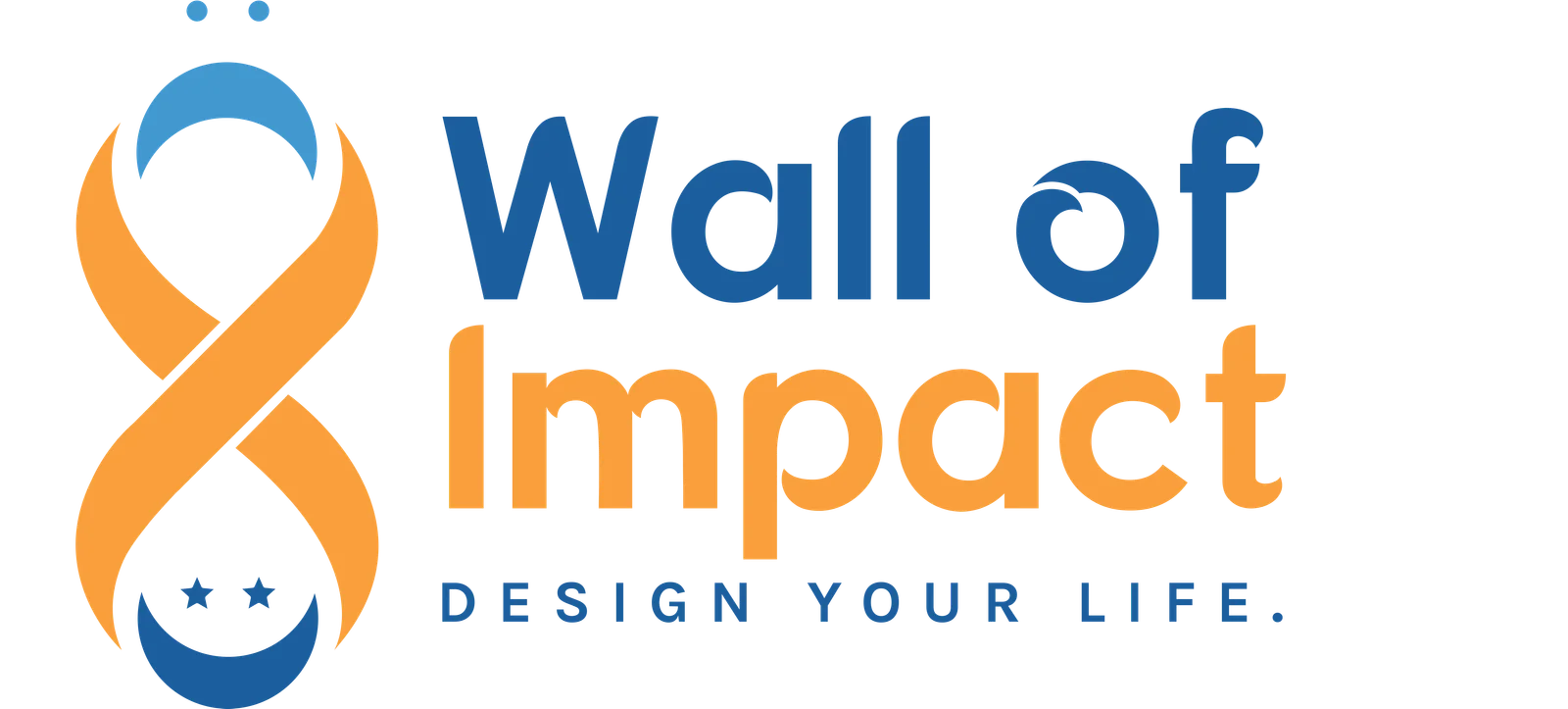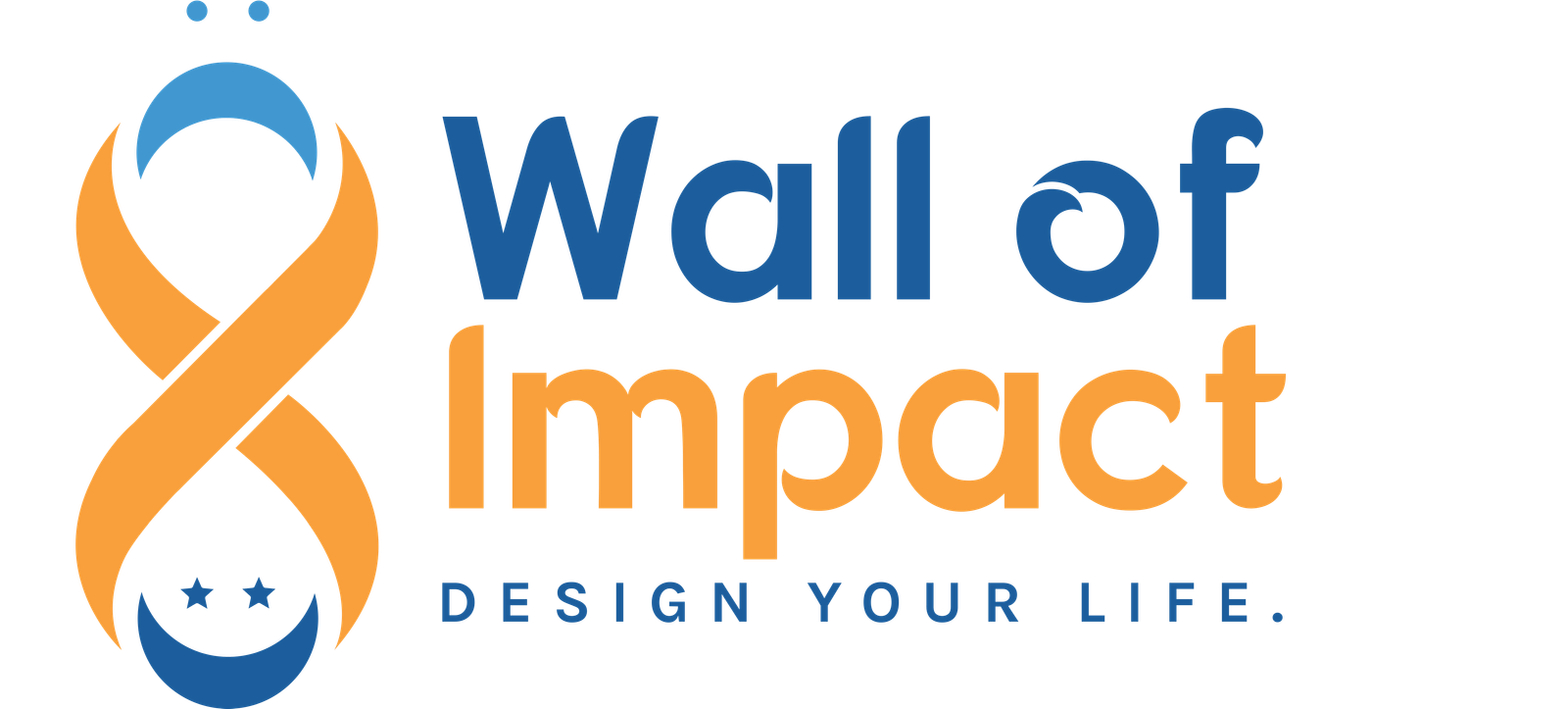Understanding and Overcoming Addiction: A Comprehensive Guide

Addiction is a complex issue affecting millions globally, transcending age, gender, and socioeconomic status. Understanding the various types of addictions, their causes, and the pathways to recovery is crucial in addressing this pervasive problem. This blog explores the types of addictions, reasons for their development, the challenges of overcoming them, and the importance of therapeutic methods and support systems in recovery. Additionally, we’ll introduce the concept of the “Wall of Impact” and how it can be a powerful tool in addiction recovery.
Types of Addictions
Substance Addictions:
- Alcohol Addiction: Dependence on alcohol can lead to severe physical and psychological issues, contributing to approximately 3 million deaths annually, according to the World Health Organization (WHO).
- Drug Addiction: This involves the abuse of legal or illegal drugs, including opioids, cocaine, marijuana, and prescription medications. The United Nations Office on Drugs and Crime (UNODC) reported in 2021 that about 36 million people worldwide suffer from drug use disorders.
- Nicotine Addiction: Dependence on tobacco products is primarily due to nicotine, which is highly addictive. The Centres for Disease Control and Prevention (CDC) states that smoking is the leading cause of preventable death, with over 480,000 deaths annually in the U.S. alone.
Behavioural Addictions:
- Gambling Addiction: Compulsive gambling behaviour disrupts personal and professional life. The National Council on Problem Gambling estimates that about 2 million U.S. adults meet the criteria for severe gambling problems annually.
- Food Addiction: Overeating or binge eating is often linked to emotional distress. A study published in the American Journal of Clinical Nutrition indicates that about 5-10% of the population in Western countries exhibits signs of food addiction.
- Internet and Gaming Addiction: Excessive use of the internet or video games interferes with daily responsibilities and social interactions. The American Psychiatric Association recognizes Internet Gaming Disorder as a condition warranting more clinical research.
- Shopping Addiction: Compulsive buying behaviour leads to financial and personal problems. Research suggests that about 5-8% of adults in developed countries may suffer from compulsive buying disorder.
- Sex and Pornography Addiction: Engaging in excessive sexual activities or consumption of pornography affects relationships and responsibilities. Studies show that approximately 3-6% of adults in the U.S. might struggle with sex addiction.
Reasons for Addiction
Several factors contribute to the development of addiction, including:
Genetic Predisposition: Family history of addiction can significantly increase the likelihood of developing addictive behaviours. Genetic factors account for about 40-60% of an individual’s vulnerability to addiction, according to the National Institute on Drug Abuse (NIDA).
Psychological Factors: Mental health issues such as depression, anxiety, and trauma can lead individuals to seek solace in addictive substances or behaviours. The self-medication hypothesis suggests that people use substances to cope with negative emotions or stress.
Environmental Influences: Exposure to environments where substance use is prevalent or normalized can increase the risk of addiction. For instance, adolescents living in neighbourhoods with high drug availability are more likely to experiment with drugs.
Social Factors: Peer pressure, social isolation, and lack of social support can drive individuals toward addictive behaviours. Studies show that peer influence is a significant factor in initiating substance use among teenagers.
Emotional Psychology and Coping Mechanisms: Emotional psychology plays a significant role in addiction. People often turn to substances or behaviours to cope with stress, pain, or emotional turmoil. The COVID-19 pandemic, for instance, saw a surge in substance use as people grappled with isolation and uncertainty. Emotional distress, unresolved trauma, and poor emotional regulation can push individuals toward addiction as a means of escaping or numbing their feelings.

Why is it Difficult to Overcome Addiction?
Overcoming addiction is challenging due to several intertwined factors:
Physical Dependence: Substances like drugs and alcohol can create physical dependency, causing withdrawal symptoms that are difficult to manage. Withdrawal can include symptoms like nausea, anxiety, seizures, and severe cravings.
Psychological Cravings: Addictive behaviours create strong psychological cravings, making it hard to resist the urge to engage in them. The brain’s reward system is altered, reinforcing the behaviour.
Social and Environmental Triggers: Being in environments or situations that trigger addictive behaviours can impede recovery efforts. For example, an alcoholic may struggle to stay sober in social settings where alcohol is present.
Mental Health Issues: Co-occurring mental health disorders can complicate the recovery process. Approximately 50% of individuals with severe mental disorders are affected by substance abuse, and vice versa.
Fear of Change: The fear of facing life without the crutch of addiction can be daunting, preventing individuals from seeking help. Change requires confronting underlying issues and adapting to new coping mechanisms.
Methods and Resources for Overcoming Addiction
Recovery from addiction is possible with the right support and resources. Here are some effective methods:
Detoxification Programs: Medical supervision helps safely manage withdrawal symptoms during the initial phase of recovery. Detox is often the first step before entering a comprehensive treatment program.
Therapy and Counselling: Cognitive-behavioural therapy (CBT), motivational interviewing, and other therapeutic approaches help address the root causes of addiction. Therapy can help individuals develop healthier coping mechanisms.
Support Groups: Groups like Alcoholics Anonymous (AA) and Narcotics Anonymous (NA) provide peer support and a sense of community. Sharing experiences with others facing similar challenges can be empowering.
Medication-Assisted Treatment (MAT): Medications can help manage withdrawal symptoms and reduce cravings, especially for opioid and alcohol addictions. MAT combined with counselling and behavioural therapies are effective.
Rehabilitation Programs: Inpatient or outpatient rehab programs offer structured environments and comprehensive support for recovery. These programs provide medical care, therapy, and life skills training.
The Role of Therapy in Addiction Recovery
Therapy plays a crucial role in addiction recovery by:
Identifying Triggers: Therapists help individuals recognize and manage the triggers that lead to addictive behaviours. Understanding triggers is essential for preventing relapse.
Developing Coping Strategies: Therapy equips individuals with healthy coping mechanisms to deal with stress and emotional challenges. Techniques include mindfulness, stress management, and emotional regulation.
Addressing Underlying Issues: Therapists work to uncover and treat underlying mental health issues contributing to addiction. Dual diagnosis treatment addresses both addiction and co-occurring disorders.
Providing Continuous Support: on-going therapy offers continuous support and guidance throughout the recovery journey. Regular sessions help individuals stay on track and address emerging issues.
The Importance of Family and Loved Ones’ Support
Family and loved ones play a pivotal role in supporting individuals through recovery by:
Offering Emotional Support: Providing encouragement, understanding, and a listening ear during difficult times. Emotional support can boost an individual’s motivation to stay sober.
Creating a Stable Environment: Maintaining a supportive and stable home environment conducive to recovery. A positive home environment reduces stress and temptation.
Participating in Therapy: Engaging in family therapy sessions to address relational issues and improve communication. Family therapy can resolve conflicts and build stronger relationships.
Encouraging Healthy Habits: Promoting healthy lifestyle changes and activities that support sobriety. Encouraging exercise, hobbies, and social activities helps individuals build a fulfilling life without addiction.
Being Patient and Non-Judgmental: Demonstrating patience and avoiding judgment fosters a sense of safety and trust. A non-judgmental attitude helps individuals feel accepted and supported.

The Impact of Therapeutic Imagery in Coping with Addiction
Therapeutic imagery, often used as a part of holistic and integrative treatment approaches, can be a powerful tool in addiction recovery. Visual representations that inspire, motivate, and provide a sense of peace and hope can significantly influence an individual’s mental and emotional state. Here’s how therapeutic imagery can help individuals cope with addiction faster:
Visual Reinforcement of Goals and Progress: Therapeutic images can serve as constant visual reminders of the goals and the progress made during the recovery journey. Seeing images that symbolize freedom, health, and happiness can reinforce an individual’s commitment to sobriety and remind them of the benefits of a life free from addiction.
Enhancing Motivation and Hope: Inspiring images can boost motivation by depicting the positive outcomes of overcoming addiction. For instance, images showing people living joyful, healthy lives can instil hope and a belief that recovery is possible. This can be particularly impactful during moments of doubt or when an individual feels discouraged.
Reducing Stress and Anxiety: Images that evoke calm and tranquillity, such as serene landscapes or peaceful nature scenes, can help reduce stress and anxiety. During recovery, managing stress is crucial, as high levels of stress can trigger relapse. Therapeutic images can provide a mental escape, helping individuals to relax and centre themselves.
Supporting Mindfulness and Meditation Practices: Mindfulness and meditation are effective techniques in addiction recovery, helping individuals stay present and manage cravings. Therapeutic images can be used as focal points during these practices, aiding in concentration and enhancing the overall effectiveness of mindfulness exercises.
Promoting Positive Emotional States: Viewing positive and uplifting images can improve mood and emotional well-being. Positive emotional states are conducive to recovery, as they can counteract the negative emotions often associated with withdrawal and the early stages of sobriety.
Encouraging Self-Reflection and Inner Healing: Certain therapeutic images can prompt self-reflection and introspection, encouraging individuals to explore their inner selves and address underlying issues contributing to addiction. This deeper understanding can be critical in achieving long-term recovery.
Facilitating Visualization Techniques: Visualization techniques, where individuals imagine themselves succeeding in their recovery, are powerful tools in addiction treatment. Therapeutic imagery can enhance these techniques by providing concrete visual aids that individuals can use to picture their success and reinforce their belief in their ability to overcome addiction.
Introducing the Wall of Impact
The “Wall of Impact” is a concept where individuals create a visual collage of motivational images, quotes, and personal milestones. This wall serves as a daily reminder of their journey, goals, and the positive changes they strive for, significantly enhancing motivation and providing constant reinforcement.
How to Create a Wall of Impact:
Personalized Imagery: Choose images and quotes that resonate personally. Daily Visualization: Spend time each day focusing on the wall to reinforce commitment. Incorporation in Therapy: Use the wall as a discussion and reflection tool in therapy. Supportive Environment: Display the wall prominently in recovery spaces.
Current Trends and Data on Addiction
The contemporary rise in addiction rates is alarming. Several surveys and studies highlight this trend:
- Substance Abuse and Mental Health Services Administration (SAMHSA) National Survey on Drug Use and Health (NSDUH): The 2020 survey indicated that 20.4 million people aged 12 or older had a substance use disorder (SUD) in the past year in the United States.
- COVID-19 Pandemic Impact: A study by The Lancet Psychiatry in 2021 revealed a significant increase in substance use during the pandemic, with 13% of adults reporting new or increased substance use due to COVID-19-related stress.
- Mental Health America (MHA) 2021 Report: The report highlighted that youth mental health is worsening, with increased rates of depression and anxiety leading to higher substance use.
Conclusion
Addiction is a multifaceted issue requiring a comprehensive approach to overcome. Understanding the types of addictions, the reasons behind them, and the challenges of recovery is essential in providing effective support. Therapy, coupled with the unwavering support of family and loved ones, along with the strategic use of therapeutic imagery and tools like the Wall of Impact, can make a significant difference in helping individuals break free from the chains of addiction and reclaim their lives. Remember, recovery is a journey, and with the right resources and support, it is achievable.
By fostering awareness and compassion, we can create an environment where individuals feel empowered to seek help and embark on the path to recovery



